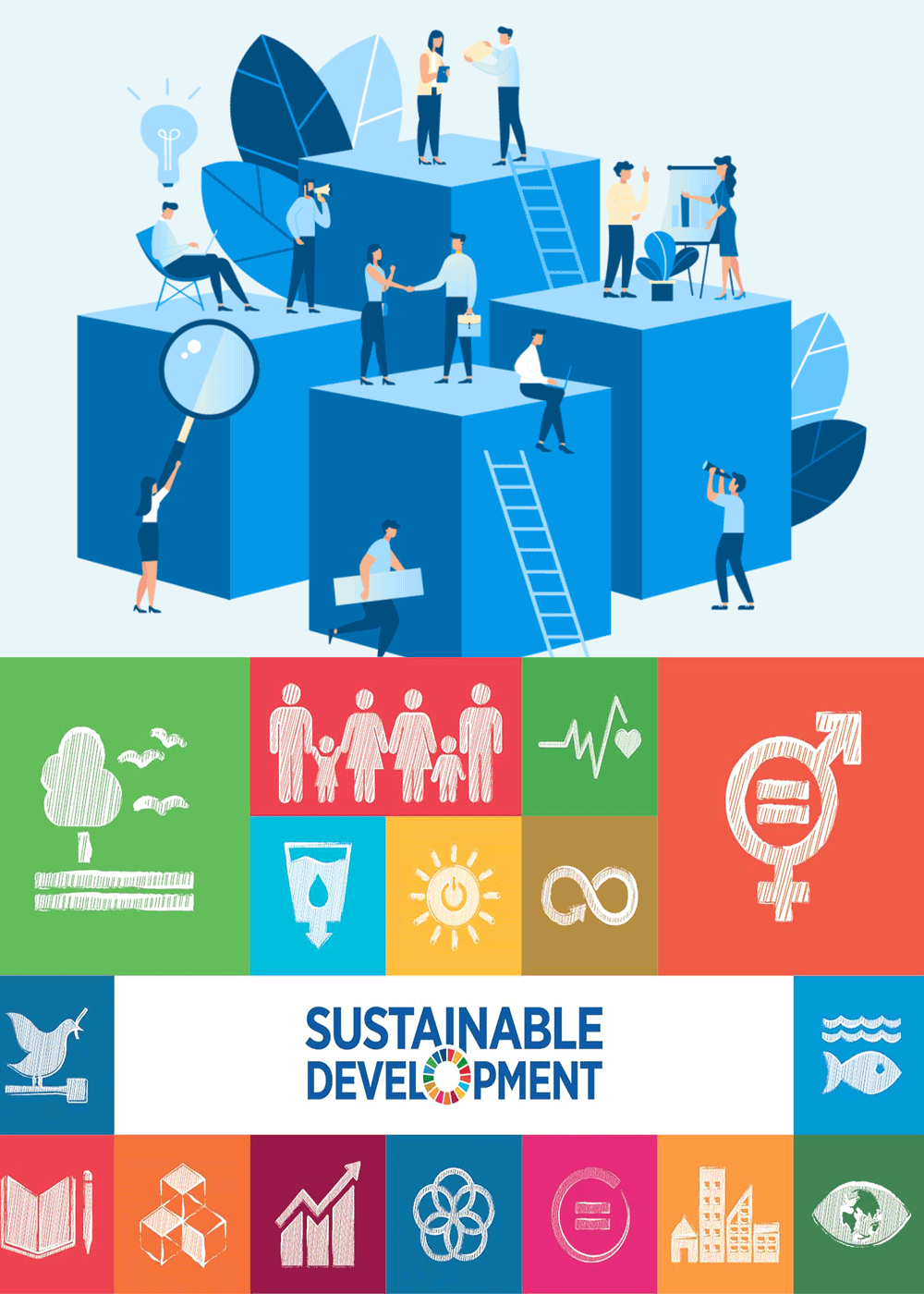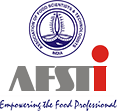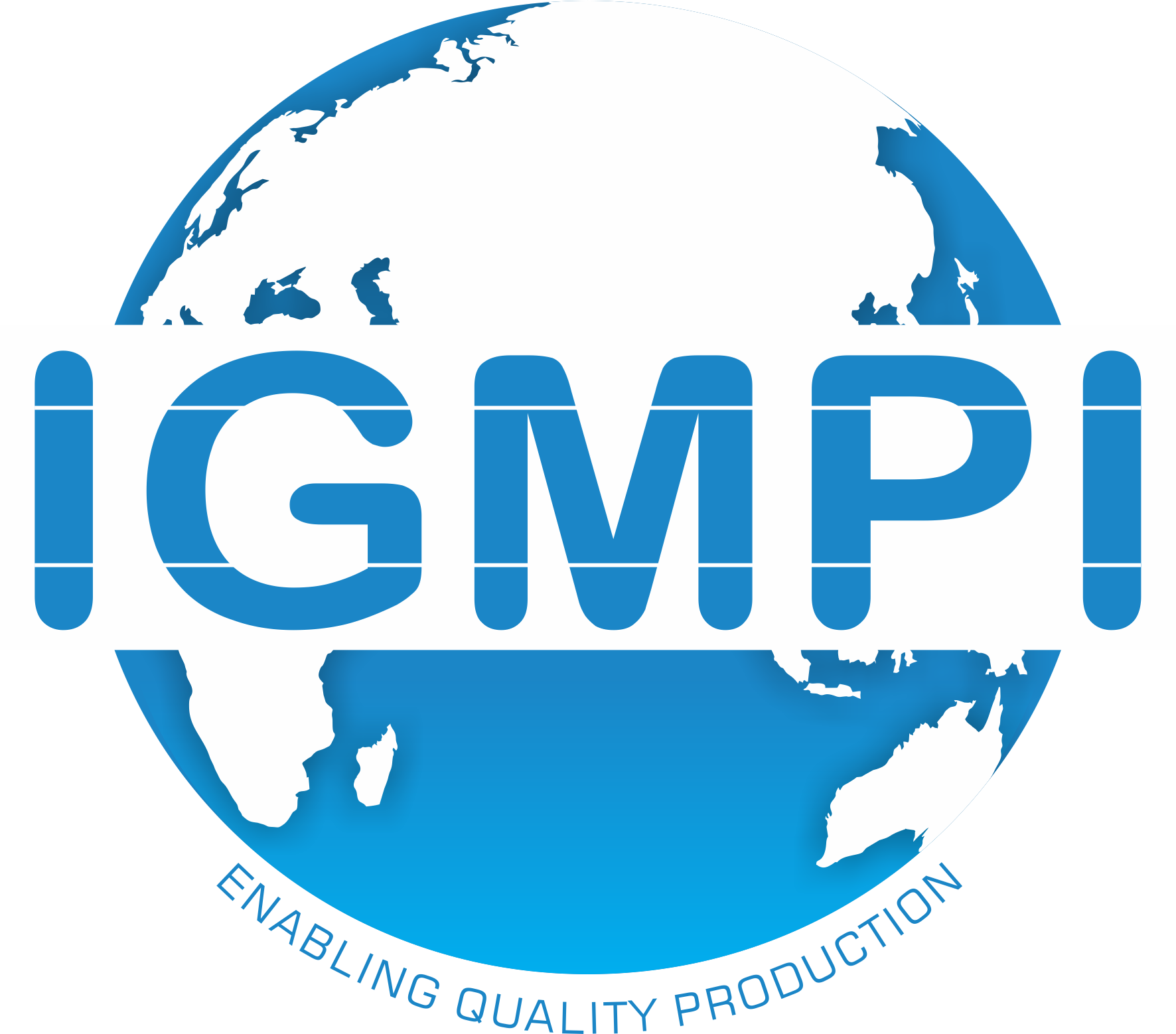
IGMPI Centre for Health Management and Research (CHMR), set-up as a constituent academy of Institute of Good Manufacturing Practices India (IGMPI), registered as a non-profit society (under The Societies Registration Act, 1860) with Government of India and a member (as a higher/professional Education Institute) of Quality Council of India(QCI) -which is an autonomous body and an accreditation authority for education & vocational training providers under the Ministry of Commerce & Industry, Government of India, is dedicated for providing education and training, news updates through newsletters covering national and international news and analysis on all aspects of public health and hospital management. The Centre for Health Management and Research is led by intelligent, dynamic faculty members trained in various top healthcare industries, possessing cutting-edge technical expertise and skills, and dedicated to teaching and research, allowing new industry-integrated programmes in Healthcare.
The healthcare industry (also known as the clinical industry or health economic system) is an aggregation and integration of sectors in the economic system that offers goods and services to treat sufferers with healing, preventive, rehabilitative, and palliative care. It consists of the generation and commercialization of goods and offerings lending themselves to preserving and re-setting up fitness. The modern-day healthcare enterprise consists of 3 important branches which might be services, merchandise, and finance, and may be divided into many sectors and classes and depends on the interdisciplinary groups of educated specialists and paraprofessionals to fulfill the fitness needs of individuals and populations.
Healthcare has become one in all India’s biggest sectors, both in phrases of sales and employment. Healthcare contains hospitals, medical gadgets, clinical trials, outsourcing, telemedicine, clinical tourism, health informatics ,medical insurance,medical record technology and medical equipment. The Indian healthcare region is growing at a brisk tempo because of its strengthening coverage, services, and increasing expenditure by means of public as nicely non-public gamer.
India's competitive advantage lies in its big pool of properly-educated medical professionals. India is also cost-aggressive as compared to its friends in Asia and western countries. The fee of surgical procedure in India is set one-tenth of that within the US or Western Europe. The low fee of scientific offerings has ended in a rise within the U . S . A .’s clinical tourism, attracting sufferers from across the world. Moreover, India has emerged as a hub for R&D activities for global players because of its fantastically low fee of clinical studies.
The medical care area has encountered significant development around the world, with the business' worth expanding from $ 8.5 trillion out of 2018 to $ 12 trillion of every 2022. India's general medical care industry is assessed to be near $ 372 billion of every 2022, with a build yearly development rate (CAGR) of 22%.
Institute of Good Manufacturing Practices India, registered as a non-profit society (under The Societies Registration Act,1860) with Government of India recognised by Ministry of Commerce & Industry, Government of India, accredited Vocational Institution of Ministry of Education, Government of India and approved by Food Safety and Standards Authority of India (FSSAI) presents unique, friendly and interactive platform to get rid of all your GMP related glitches. GMP- is an essential element of industries like pharmaceutical, cosmetic, Ayurveda, biotech, homeopathic, medical device and food manufacturing. GMP in itself is the most dynamic part which witnesses frequent changes in terms of newer rules being added and older ones being renewed. Keeping self updated with current GMPs thus becomes inevitable to stay abreast with the changing industry needs and practices.
Our group of learned professionals from above mentioned sectors of the Pharma, Healthcare and Food industries have put together their knowledge; know about and practical experiences in form of this GMP guide. IGMPI is moving hand in hand with technology advances and has gained recognition as a stronger and better training platform provider for professionals and students in the areas of GMP, Quality Assurance and Control, Pharma, Food and healthcare Regulatory Affairs, Clinical Research, Pharmaceutical IPR and Good Laboratory Practice and Product Management. The importance of quality healthcare and foods is known to our founders and thus numerous efforts are being made to offer friendly but effective and easy regular and online/online sources of GMP training, Quality Assurance and Control, Pharma and healthcare Regulatory Affairs, Clinical Research, Pharmaceutical IPR and Good Laboratory Practice in form of formal classroom studies, online/interactive programmes, online seminars, as well as onsite training programmes along with knowledge of worldwide affairs of the industry; in short a round-the-clock help for any information in these areas needed by anybody from around the world. Based on high standard of quality, the training programmes in Pharma, Healthcare and Food GMP, Quality Assurance and Quality Control, Regulatory Affairs, IPR, Pharma Product Management, Public Health, Hospital Management, Clinical Research, Pharmacovigilance, Medical Writing, Medical Coding, Nanotechnology, Drug Design and Discovery, Food QA&QC etc areas have been approved by Quality Council of India, which is an autonomous body and an accreditation authority for education & vocational training providers under the Ministry of Commerce & Industry, Government of India.
The IGMPI's team of technology experts and other Industry advisors together pursue to make cGMP knowledge, training in the area of Pharma and Food manufacturing easily accessible, through this platform.
IGMPI is recognized by the Ministry of Commerce & Industry Government of India. Duly licensed and certified by Bureau of Indian Standards (BIS) under Bureau of Indian Standards (Conformity Assessment) Regulations 2018 (License number: CRO/QM/L-8004228) for offering education and training programmes in the areas of Pharmaceutical, Food, Nutrition and Healthcare.


Institute of Good Manufacturing Practices India (IGMPI) is registered as a non-profit society with its own Memorandum of Association and bye-laws under The Societies Registration Act, 1860, Government of India. IGMPI is an accredited Vocational Institution of Ministry of Education, Government of India.
The Post Graduate and Executive Diploma programmes of IGMPI in Good Manufacturing Practices, Regulatory Affairs, Intellectual Property Rights, Quality Assurance and Quality Control, Public Health, Nanotechnology, Hospital Management, Product Management, Sales and Marketing Management, Clinical Research, Medical Writing, Drug Discovery and Development, Pharmacovigilance, Medical Coding have been duly assessed and approved by Quality Council of India, Government of India based on fulfillment of QCI's following criteria:
IGMPI is also approved by Food Safety and Standards Authority of India (FSSAI) (FSSAI ID: TPINS18). IGMPI® is licensed by Department of Food Safety & Drug Administration under the Drugs and Cosmetics Act, 1940 and registered under Food Safety and Standards Act 2006. QUALITY COUNCIL OF INDIA (QCI) has also conferred IGMPI with D.L. SHAH NATIONAL QUALITY AWARD, Certificate of Merit & ASSOCHAM has conferred IGMPI with the Services Excellence Award based on excellence of its services to the students and training participants.
IGMPI is a Lifetime Institutional member of Indian Pharmaceutical Association (IPA).

IGMPI is an Institutional member of The Association of Food Scientists and Technologists (India), (AFSTI).

Bureau of Indian Standards (BIS) came into existence through an act of Parliament in 1987. BIS is the National Standard Body of India established under the BIS Act 2016 for the harmonious development of the activities of standardization, marking and quality certification of goods and for matters connected therewith or incidental thereto. The Bureau is a Body consisting of 25 members representing both Central and State governments, Members of Parliament, industry, scientific and research institutions, consumer organizations and professional bodies; with Union Minister of Consumer Affairs, Food and Public Distribution as its President and with Minister of State for Consumer Affairs, Food and Public Distribution as its Vice-President.
For providing its education and training services to overseas students, IGMPI is registered with the Directorate General of Foreign Trade, Government of India and our Export Import Code is AADCI7680Q.
IGMPI is an Institutional Member of the International Society for Quality in Health Care 
Bureau of Indian Standards (BIS) is a member of International Organization for Standardization (ISO) and through the Indian National Committee (INC) which is a member of International Electrotechnical Commission (IEC). BIS is also a member of regional standards bodies like Pacific Area Standards Congress (PASC) and South Asian Regional Standards Organization (SARSO). India started taking part in IEC from 1911 and subsequently the then Indian Standards Institution (now BIS) took over the responsibility of Indian National Committee of IEC(INC-IEC) in 1949. Since then the INC-IEC is actively participating in the activities of the IEC both at the policy level and technical work and carrying out the responsibilities as member body of IEC Council. India is a member in Standards Management Board (SMB) of IEC since 2015.BIS has also signed Bilateral Cooperation Agreements (BCA)/Mutual Recognition Agreements (MRA) with the National Standards Bodies of several countries like Afghanistan, Bangladesh, Belarus, Egypt, European Union , Germany, Ghana, Greece, Indonesia, Iran, Japan, Jordon, Kenya, Kyrgyzstan, Mali, Mauritius, Nigeria, Russia, Saudi Arabia , Slovakia, Slovenia, Suriname, USA, UAE, Uzbekistan, Viet Nam, Bhutan, Brazil, Israel, Nepal, Pakistan and Sri Lanka.
National Accreditation Board for Certification Bodies (NABCB), Quality Council of India is a member of International Accreditation Forum (IAF) & Pacific Accreditation Cooperation (PAC) as well as signatory to its MLAs for Quality Management Systems, Environmental Management Systems and Product Certification. NABCB is also a Full Member of International Laboratory Accreditation Cooperation (ILAC) & Asia Pacific Laboratory Accreditation Cooperation (APLAC) as well as signatory to its MRAs for Inspection.
Development Management encompasses the strategic planning, implementation, and evaluation of policies, programs, and projects aimed at fostering sustainable socio-economic progress and human well-being in societies. It integrates principles from various disciplines including economics, public policy, governance, and social sciences to address complex development challenges. Key components of Development Management include understanding development theories, formulating effective policies, promoting inclusive governance, and ensuring the efficient allocation of resources.
This Development Management course offers a comprehensive exploration of the principles, theories, and practices crucial for addressing contemporary development challenges. Over the course's duration, students delve into multifaceted topics, starting with an overview of Development Management's significance and foundational concepts in development theory, policies, and programs. They progress to examine critical aspects such as Development Administration and Governance, Sustainable Development Goals (SDGs), Demography, and Economics for Development. Further modules cover Public Policy formulation, Management principles application, and effective Communication strategies. Special emphasis is placed on engaging communities, leveraging Information Communication Technologies (ICTs), and mastering data management and analysis. The course concludes by delving into livelihoods, skills, and enterprise development, emphasizing sustainable approaches and value chain dynamics. By fostering a comprehensive understanding of these concepts and practices, the course prepares students to become adept practitioners capable of driving inclusive and sustainable development initiatives across diverse contexts.
Module 1: Introduction to Development Management
Module 2: Development Administration and Governance
Module 3: Sustainable Development Goals (SDGs)
Module 4: Demography and Development
Module 5: Essentials of Economics for Development
Module 6: Public Policy and Governance
Module 7: Principles of Management in Development
Module 8: Communication for Development
Module 9: Engaging Communities in Development
Module 10: Information Communication Technology for Development
Module 11: Data Management and Analysis
Module 12: Livelihoods, Skills, and Enterprises
Module 13: Quality Education and Governance
Module 14: Social Entrepreneurship
Module 15: Case Studies and Best Practices in Development Management
Any Graduation/ B.tech/ B.Sc. in Microbiology/ Life Sciences/ Botany/ Zoology/ Food Science/ Food Technology/ BE/ B.Pharma/ MBBS/ BDS/ BHMS/ BUMS/ BAMS or any other discipline. Diploma holders are eligible for our Executive Diploma, Industry Certificate and Certificate Programmes.
The duration to complete this programme is 1 year (Post Graduate Diploma), 6 months (Executive Diploma).
The registration dates for this programme run by the Institute are updated timely on the webpage. Effective online learning tools incorporated into the design of the webpage make the Programme lectures and study material easily accessible. This gives a huge window of self-regulated and self-paced performance to the participants.
A comprehensive study material for all the modules in hard copies, ensuring the needs of the audience. The accompanying training material is appropriately aligned with the current industry’s expectations.
IGMPI follows a credit system based on all learning activities involved in studying for all PG Diploma, Executive Diploma and Certificate Programmes. Each of your modules is equal to 4 credits. To successfully complete the programme, you will have to earn all the credits assigned to your programme.
All the participants are expected to appear for an online exam and are also obliged to submit assignments after each module. After successful completion, the participants will be awarded Post Graduate Diploma/Executive Diploma in Development Management by Centre for Health Management and Research, IGMPI. For all the above-mentioned modules, Online Classes (Online mode) or face-to-face classes (Regular mode), elaborate programme material, self-assessment assignments would be provided by the Institute. Details get updated on the webpage as well.
The Institute has partnered with many organizations for providing with placement assistance to its participants. Besides, it has a robust placement cell comprised of senior level Human Resources professionals and Talent Acquisition experts which maintains close links with business and industry. This cell is continuously engaged in promoting the employability of our participants and encouraging the concerned Human Resources department and Hiring Managers to recruit/hire our participants for their vacant positions. The efforts of our placement cell also include helping with professional resume writing & interview skills.
In recent months the Institute has witnessed more and more participation from professionals working with global pharmaceutical, IT and Healthcare like Abbott Laboratories, Infosys Ltd., Dell Technologies, Accenture, Mobikwik, Novo Nordisk, Merck Group, Optum, American Express, Allegis Group, IBM, Cardinal Health, Wipro Limited, Tata Consultancy Services, Aster DM Healthcare, Merck Group, etc. The IGMPI’s Corporate Resource Division actively recommends our students and training participants for various job requirements and specialized roles to Human Resource, Talent Acquisition as well as the heads of various departments in Pharmaceutical, Healthcare industries on regular basis.
Future career prospects in Development Management are promising, offering opportunities to work in various sectors such as international development organizations, government agencies, non-profit organizations, consulting firms, and academia. Graduates can pursue roles as project managers, program coordinators, policy analysts, and development specialists, focusing on areas like poverty alleviation, sustainable development, social inclusion, and environmental conservation. With globalization and increasing interconnectedness, there's a growing demand for professionals skilled in navigating complex development challenges, particularly in emerging economies and post-conflict regions. Moreover, the adoption of innovative technologies, data-driven decision-making, and inclusive approaches further expands the scope of career opportunities in Development Management. As the world continues to grapple with issues such as climate change, inequality, and public health crises, individuals with expertise in development management will play a crucial role in driving positive change and shaping a more equitable and sustainable future.
For further enquiries:
Write to :
info@igmpi.ac.in
Centre for Health Management and Research (CHMR)
18001031071 (Toll Free), Phone: +91 11 26512850


C-6, Qutab Institutional Area, Near Old JNU Campus, New Delhi-110016
18001031071 (Toll Free), Phone: +91 11 26512850